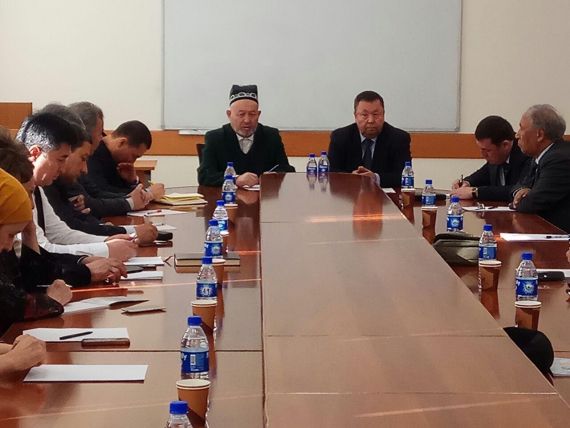Tashkent city



On January 25 Uzbekistan National University hosted the first meeting of scientific council of Islamic Academy. Academicians, scientists, professors, members of scientific councils and religious leaders participated in the event.
In his speech N.Ibrohimov noted that President’s decree on “Establishment of Islamic Academy of Uzbekistan” inspired many scholars working in this sphere. The Academy offers two-years master’s program and three years doctor’s program.
On his turn Muftiy Usmankhan Alimov underlined that the academy had been initiated by the President of Uzbekistan where “Quran Studies”, “Fikh sciences”, “Khadis sciences” and “Kalam science” will deeply researched by young scholars with the hope to educate scientists like Imam Bukhariy, Imam Termiziy, Abdulkholik Gijduvoniy and Bakhouddin Naqshband.
The participants also discussed the organizational issues of the new educational establishment.
Press Service,
Muslim Board of Uzbekistan

Umrah entry visas now valid for one month instead of three from issuance date.
Saudi Arabia’s Ministry of Hajj and Umrah has reduced the validity period for Umrah entry visas from three months to one month from issuance date, though the permitted stay duration remains unchanged at three months after arrival.
The new regulations take effect next week (November 1, 2025) amid a record-breaking Umrah season that has already seen over four million visas issued to foreign pilgrims.
Under the updated system, Umrah visas will automatically cancel if pilgrims fail to enter Saudi Arabia within 30 days of issuance.
The three-month allowance for staying in the Kingdom after arrival remains unaffected, preserving pilgrims’ flexibility once they enter the country.
Ahmed Bajaeifer, advisor at the National Committee for Umrah and Visit, confirmed the changes to prepare for expected pilgrim increases following summer’s end and cooler temperatures in Mecca and Medina.
The current Umrah season, beginning in early June, has achieved unprecedented numbers with four million foreign pilgrims arriving within just five months. This volume surpasses previous full-season totals, demonstrating growing global demand for Umrah pilgrimage opportunities.